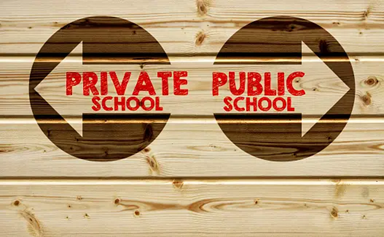Alabama lawmakers have approved a school choice program – By Kim Chandler, AP News
Alabama Gov. Kay Ivey on Thursday signed legislation creating a program similar to school vouchers that would provide eligible families with as much as $7,000 to help pay for private school and $2,000 for homeschooling expenses.
The Alabama Senate voted 23-9 on Wednesday for the proposal. The Senate approved it after more than five hours of debate in which opposed lawmakers presented divergent views on allowing families to tap into public money for private schooling.
“This bill will add another choice to students, families and parents across the state and options they can either take or not take,” said Republican Arthur Orr, the bill sponsor. The state, he added, should “focus on the students and not so much institutions.”
The legislation will allow eligible families to access as much as $7,000 in state money for private school tuition, tutoring or transfer fees to move to another public school. Parents could also get up to $2,000 for home school expenses. The program would be funded at a minimum level of $100 million.

Special education, reading, computer science and other bills advance from Nebraska committee – By Zach Wendling, Nebraska Examiner
A Nebraska lawmaker is hailing the advancement of an Education Committee legislative package that she says is solution-oriented and provides support from all sides.
The assortment of ten bills is tied with a bow under Legislative Bill 1284, introduced by State Sen. Lynne Walz of Fremont. The bills relate to training teachers in reading instruction and computer science and technology; dyslexia research; special education; and more.
“We, as the Education Committee, just put together a package of bills that will really provide good solutions for kiddos, for families, for people who may be going into the teaching profession,” Walz told the Nebraska Examiner.
The State Board of Education is in favor of nearly every bill in the package and neutral on one (LB 985). Board President Elizabeth Tegtmeier said Friday she appreciates that lawmakers recognize the need to support and fund education.

All Maine students can now get free lunches, no application needed. What does that mean for poverty data? – By Eesha Pendharker, Maine Monitor
Maine was one of the first states to pass legislation providing free school lunches to all students after pandemic-era funding expired — a policy that has been adopted in seven other states and is being considered across the country.
But since the law took effect a year and a half ago, some districts have struggled with an unintended consequence: Now that parents no longer need to fill out applications to get their children access to free meals, officials have lost an important source of data on their district’s low-income households, information traditionally used for funding.
The free and reduced-price meal application, a federal form sent home with students at the start of the school year, allows districts to determine what percentage of students qualify for free or reduced-price meals.
That information has traditionally been used to allocate funding to districts and schools, and identify whether students or teachers are eligible for certain grants or waivers.

Dual enrollment in North Carolina grew 12% in 2022-23 – By Emily Thomas, EdNC
Dual enrollment increased by 12% in North Carolina during the 2022-23 academic year. According to a recent report to the General Assembly, more than 78,000 students across the state participated in Career and College Promise (CCP) — a program that allows high school students to take college courses tuition-free.
Dr. Brian Merritt, senior vice president and chief academic officer at the North Carolina Community College System (NCCCS), said in a press release that it’s no surprise participation continues to increase statewide.
“These tuition-free opportunities are drivers of economic mobility and generational change for high school students and their families,” he said.
CCP includes three pathways: college transfer, career and technical education (CTE), and Cooperative Innovative High Schools (CIHS) — also referred to as early colleges. The pathways are structured and provide students opportunities to earn credits that often lead to certificates and associate degrees.












